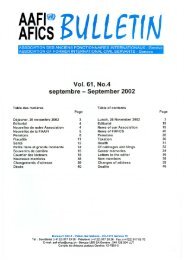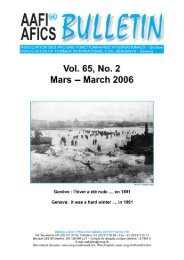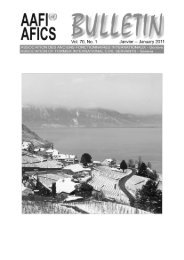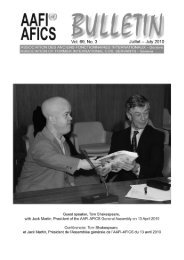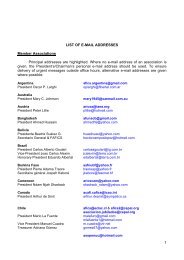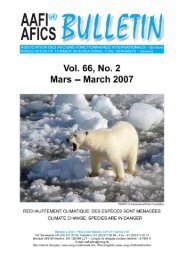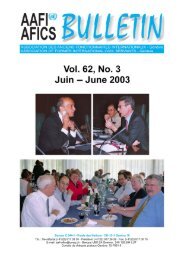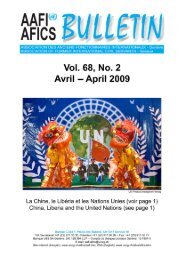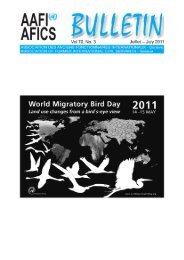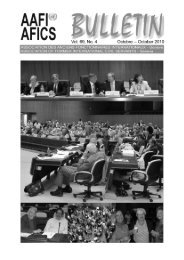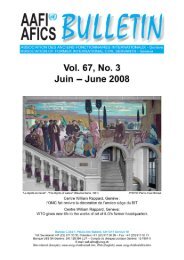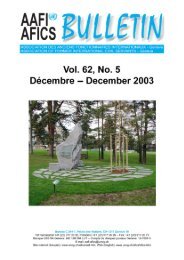VOL. 66, NO. 5 - aafi-afics - UNOG
VOL. 66, NO. 5 - aafi-afics - UNOG
VOL. 66, NO. 5 - aafi-afics - UNOG
You also want an ePaper? Increase the reach of your titles
YUMPU automatically turns print PDFs into web optimized ePapers that Google loves.
The seat of the IPCC is in Geneva, where its Secretariat is hosted by the WMO. The current Chairman of thePanel is Mr. Rajendra Pachauri, its Secretary is MrsRenate Christ.Yves BeigbederNobel Peace Prizes awarded to UN System Organizations and officials1950 Ralph Bunche, UN Mediator in Palestine (1948)1954 UN High Commissioner for Refugees (UNHCR)1961 Dag Hammarskjold, UN Secretary-General (posthumous)1965 United Nations Children’s Fund (UNICEF)1969 International Labour Organization (ILO)1981 UN High Commissioner for Refugees (UNHCR)1988 UN Peace-Keeping Forces2001 United Nations and Kofi Annan, Secretary-General2005 International Atomic Energy Agency (IAEA) and Mohamed ElBaradei, Director-General2007 Intergovernmental Panel on Climate Change (IPCC) and Albert Arnold (Al) GoreUNITED NATIONSRESCUED UN ARCHIVES ARE BACK HOME IN GENEVAFollowing violent storms during the night of 7 to 8 June 2007, the stacks in the U<strong>NO</strong>G Library and Archiveswere flooded. This is the fifth time since 2003 that water had damaged UN documents and archives inGeneva.Up to now, U<strong>NO</strong>G has been able to save the documents from destruction on each occasion. A long-termsolution is however urgently needed if the UN is to preserve its institutional memory. The seriousness of thesituation is even more acute in Geneva as the Registry, Records and Archives Unit is also the custodian ofthe League of Nations’ material, representing close to a century of archives.Ensuring the preservation of the 11 linear kilometers of U<strong>NO</strong>G archives and 45 linear kilometers of UnitedNations documents and publications, some of which is unique, has become a real issue and concern for theU<strong>NO</strong>G Library.Storage conditions in the 1930’s Palais des Nations are far from meeting today’s preservation requirements,if international standards are to be followed. According to a specialized consultant, who in 2004 was broughtin to assess the problem following the second flooding, the collections could be considered as being in realdanger.Since the first flooding occurred, several solutions have been considered, and temporary measures havebeen taken; these include the purchase of a water pump and upgrading plumbing work. So far, no damageddocument has been destroyed. This has been the result of cooperative efforts between the Library, theBuildings and Engineering Section and the Security and Safety Section. Staff response has also beenessential when emergency procedures had to be put in place. To salvage the documents, the processrequires that damaged documents are quickly frozen to halt any further degradation, then sent to an outsidecompany specialized in lyophilization (freeze-drying). Although the documents retain traces of damage, theycan still be utilized.36



